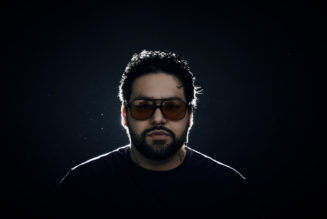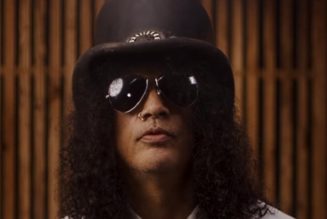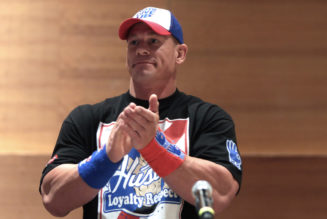Neil Young wants his music pulled from Spotify, citing the spread of vaccine misinformation on the popular Joe Rogan Experience podcast as the cause.
“They can have Rogan or Young. Not both,” Young wrote in an open letter to his management team and record label posted to his Neil Young Archives website, according to Rolling Stone. The post has since been removed. “I want you to let Spotify know immediately TODAY that I want all my music off their platform.”
Rogan, who signed a $100 million deal in May 2020 giving Spotify exclusive rights to — but not ownership of — his hugely popular podcast, has come under fire for spreading misinformation on his show about COVID-19 and vaccines. In addition to broadcasting his own vaccine-skeptical views, Rogan has hosted firebrands including Dr. Robert Malone, an immunologist who has drawn comparisons between the COVID-19 vaccine drive in the U.S. with the rise of the Nazi party in Germany, among other inflammatory remarks.
“I am doing this because Spotify is spreading fake information about vaccines – potentially causing death to those who believe the disinformation being spread by them. Please act on this immediately today and keep me informed of the time schedule,” Young wrote, according to Rolling Stone. Young addressed his letter to his manager Frank Gironda as well as Tom Corson, the co-chairman and chief operating officer of Warner Records, which releases Young’s music through its Reprise Records imprint.
“With an estimated 11 million listeners per episode, JRE, which is hosted exclusively on Spotify, is the world’s largest podcast and has tremendous influence,” Young continued. “Spotify has a responsibility to mitigate the spread of misinformation on its platform, though the company presently has no misinformation policy.”
Spotify has removed controversial content from the platform in the past. In 2017, the company took down music from multiple groups that were deemed racist “hate bands” by the Southern Poverty Law Center. The service subsequently announced a new policy around “hateful conduct,” which led the streamer to remove the music of R. Kelly, XXXTentacion and Tay-K from its editorial and algorithmic owned and operated playlists. But the company walked back that contentious policy three weeks later, stating in a blog post that the language in the provision was “too vague” and “created confusion and concern.”
Spotify, Warner Records and Gironda did not respond to Billboard’s request for comment by press time.
Earlier this month, a group of 270 doctors, scientists, professors and other medical professionals also expressed concern over Rogan’s platforming of misinformation around COVID-19. In an open letter to Spotify, the signees asked the streaming service to implement a misinformation policy as a means of combatting claims made by Rogan and his guests. Among other comments, they noted that Rogan has discouraged young people from receiving the vaccine, incorrectly claimed that mRNA vaccines are “gene therapy” and promoted the use of ivermectin to treat COVID-19, contrary to FDA warnings against using the drug to treat the virus.
Rogan’s tenure with Spotify has been rocky from the start. On Sept. 2, 2020, the company’s shares plummeted nearly 9% after it was reported that episodes featuring right-wing personalities were removed from the podcast’s back catalog prior to its debut on the service. Despite this purge, the company later came under fire with some of its employees over its decision to make Rogan episodes with “transphobic content” available to stream, leading to a series of internal discussions in which founder Daniel Ek reportedly defended the company’s decision not to remove the controversial episodes.
Beyond Rogan, Spotify has had other recent public relations issues. In November, Ek spurred a slowly growing “boycott Spotify” movement after announcing a $114 million investment in Helsing, a European security/defense technology startup that manufactures artificial-intelligence software to “keep liberal democracies from harm.”
As for Young, this isn’t his first tangle with the streaming service. In 2015, the singer-songwriter removed his music from Spotify — along with Apple Music and other subscription streaming services — after stating that he felt the audio quality of the streamers was too low. His music reappeared on the platforms the following year.
At the time of publishing, Young’s music was still available on Spotify.
[flexi-common-toolbar] [flexi-form class=”flexi_form_style” title=”Submit to Flexi” name=”my_form” ajax=”true”][flexi-form-tag type=”post_title” class=”fl-input” title=”Title” value=”” required=”true”][flexi-form-tag type=”category” title=”Select category”][flexi-form-tag type=”tag” title=”Insert tag”][flexi-form-tag type=”article” class=”fl-textarea” title=”Description” ][flexi-form-tag type=”file” title=”Select file” required=”true”][flexi-form-tag type=”submit” name=”submit” value=”Submit Now”] [/flexi-form]











Tagged: business, Coronavirus, entertainment blog, Joe Rogan, music blog, Spotify, Streaming, The Joe Rogan Experience